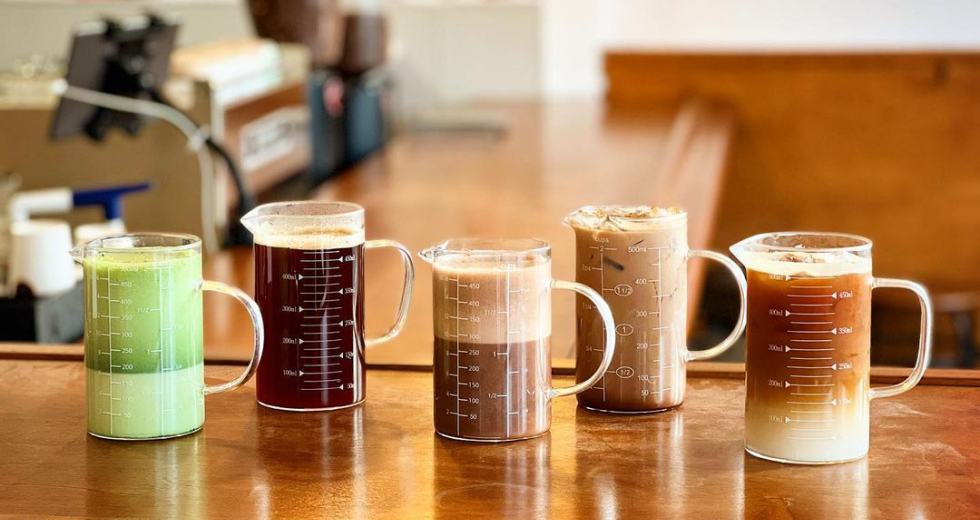The most popular snack at Tupi Coffee in Sacramento is coxinhas, which translates to “little thighs” from Brazilian Portuguese. The fried dumplings are named for their resemblance to a chicken drumstick sans bone: the favorite food of the young prince they were created for, according to legend. But balanced on a plate with their pointed ends upwards, they look more like heavy teardrops — and they may induce them, especially among those with roots in or fond memories of Brazil.
The dumpling’s mantle is mashed potato, lightly veiled in breadcrumbs. Break it to reveal shredded chicken, paprika-pink and plumped with requeijão, a Brazilian cheese as rich and viscous as crème anglaise. This style of requeijão (the Portuguese version is more like ricotta) was popularized in Minas Gerais, the main dairy-producing region of Brazil. The state is home to 20 percent of Brazil’s cows, as well as to Tupi Coffee owner Eduardo Faustino.
A coxinha is a popular Brazilian snack made to look like a
chicken drumstick.
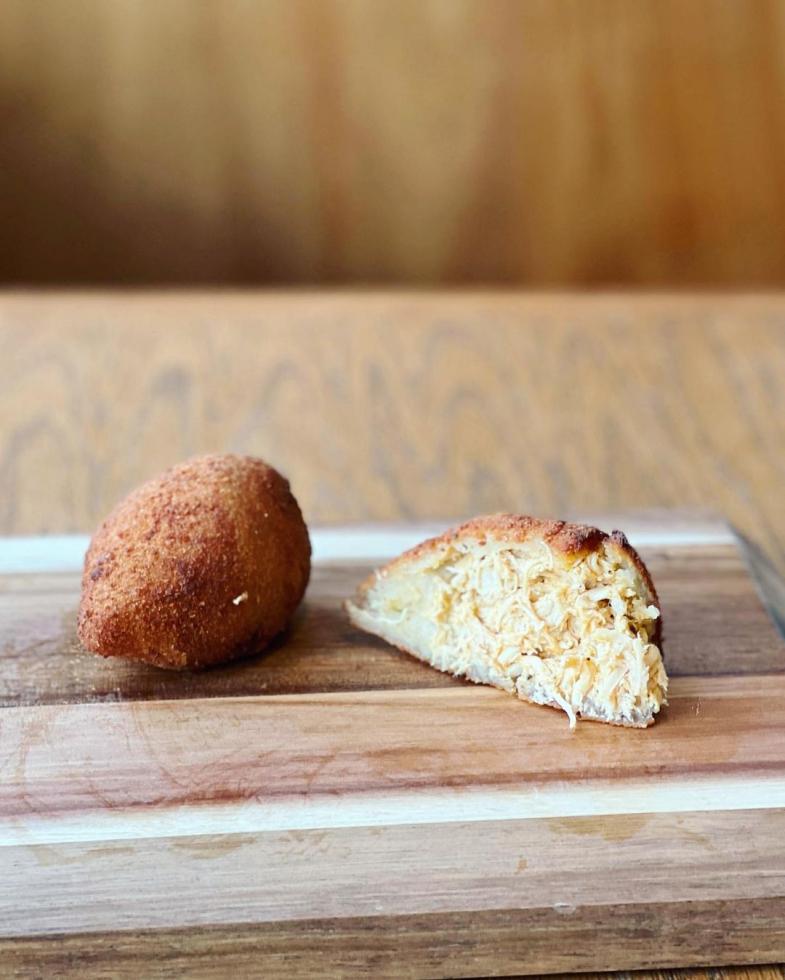
He feels similarly about the pão de queijo, or cheese bread, another invention of Minas Gerais that’s made of little more than cheese with some tapioca starch and egg to hold it in place. In the oven they puff like bite-size souffles, hollow as held breaths, with a subtle pull somewhere between mochi and mozzarella. The elasticity comes from the tapioca, a word derived from the language of Brazil’s Indigeous Tupi people.
“I’m not lying about this. The cheese bread we have is the best cheese bread I’ve had in my whole life, and I was eating cheese bread for 30 years in Brazil before I moved here.”
Eduardo Faustino, owner, Tupi Coffee
“I’m not lying about this,” Faustino asserts, “the cheese bread we have is the best cheese bread I’ve had in my whole life, and I was eating cheese bread for 30 years in Brazil before I moved here.”
Faustino moved to the Bay Area in 2016 to finish his master’s degree in marketing. Within the year he was importing coffee from his home state, which once dominated the world’s coffee supply and still accounts for nearly half of Brazil’s production. He opened his first coffee kiosk in 2018 at the utopian Salesforce Park atop Salesforce Transit Center in San Francisco. After cracks began appearing in the beams that held up the transit center, threatening to sink the floating garden, his kiosk had to close with the park.
Eduardo Faustino started Tupi Coffee in Arden-Arcade in 2019 and
opened his Boulevard Park cafe in 2021.

Tupi Coffee’s current location was built to be a corner market.
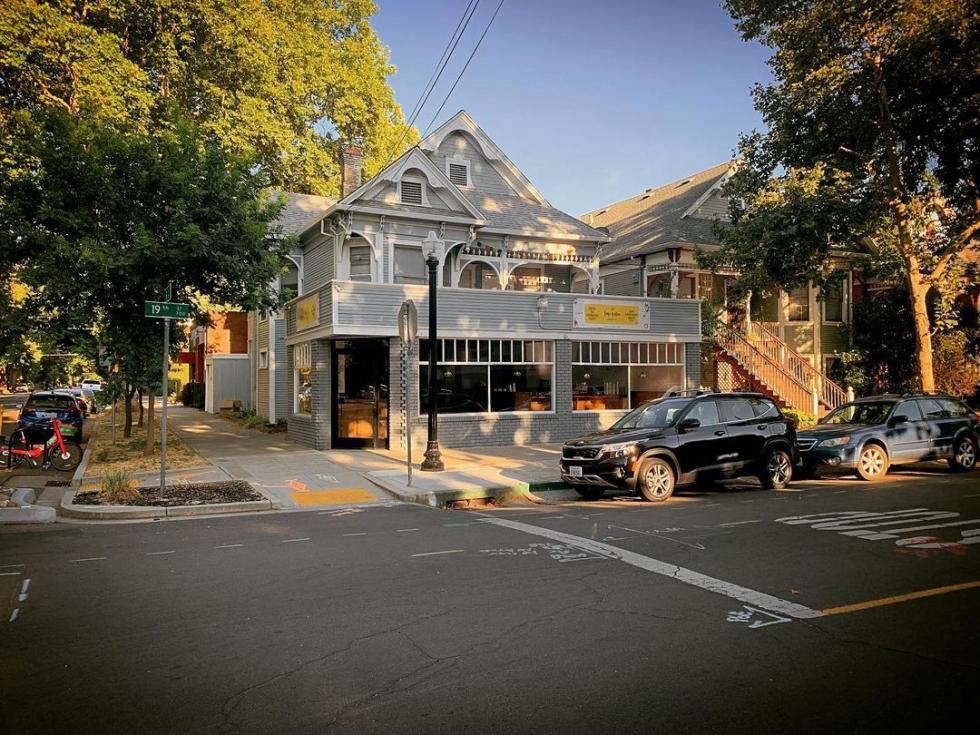
Then someone else’s pandemic closure offered him a foothold. His friends alerted him to the demise of Simpleton Coffee, a branch of Identity Coffee (which rebranded as Pivot Coffee and closed most of its locations over the past two years as employees accused the owners of discrimination and poor business practices). Formerly a corner market, the side-street space had already been renovated into an airy cafe with wide windows and wooden tables well suited for remote work. It was a perfect fit, Faustino says. Little by little, he’s giving Tupi its own look — he’s recently introduced outdoor seating and commissioned painter Rachel Kerns to adorn its interior with a golden-toned mural of a jaguar slinking through a Brazilian jungle.
Every morning at 7, the tables begin to fill with regulars he has accumulated over the past year. They come mostly for coffee, all sourced from Minas Gerais and roasted in Sacramento. Unlike many of the city’s independent coffee shops, Tupi serves low-acidity brews — “I’m not a citrusy coffee guy,” Faustino says — and often stocks varieties other than the familiar cafe arabica, such as robusta and catuaí. Once maligned and relegated to lower-grade blends, these varieties are gaining some respect among those who admit their preference for earthy, nutty flavors.
Pão de queijo, a gluten-free cheese bread made with tapioca
starch, is one of Tupi Coffee’s most popular items.
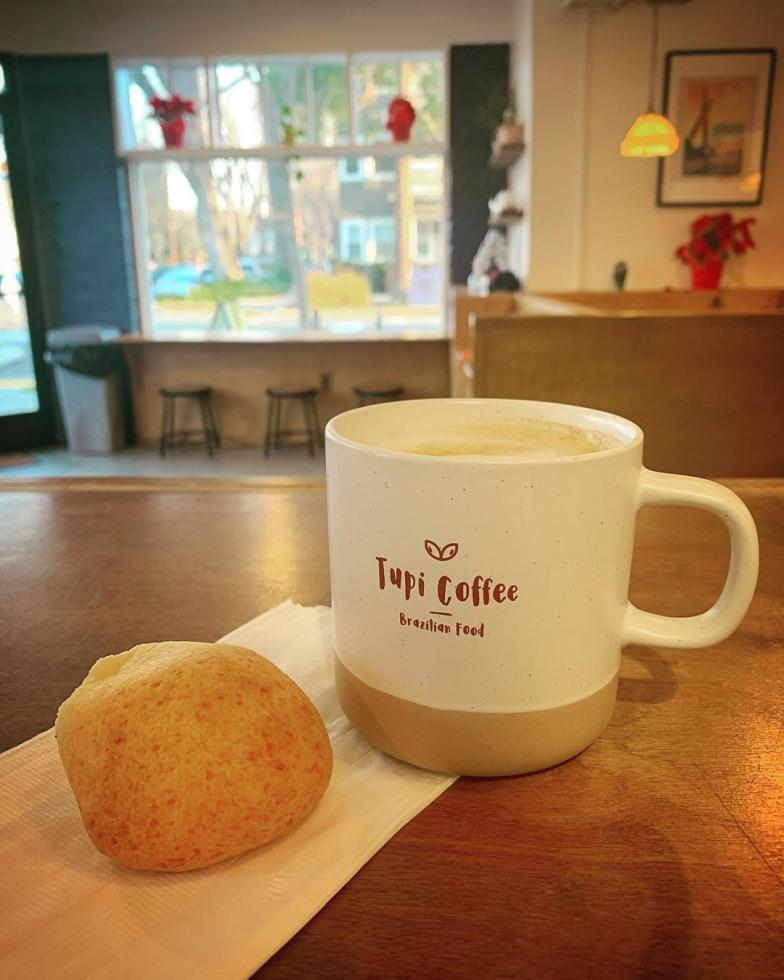
Many customers opt for more standard fare: sandwiches, breakfast bowls, muffins or avocado toast. The latter, at $8 for two generous slices, is less likely than most to prevent one from buying a home. “I’m always investigating what people want without losing our core, which is the Brazilian açaí, the juices and baked goods,” Faustino says. “This is America, so we serve what people need to make us survive.”
Tupi Coffee’s menu includes sandwiches, toasts and salads in
addition to Brazilian baked goods.
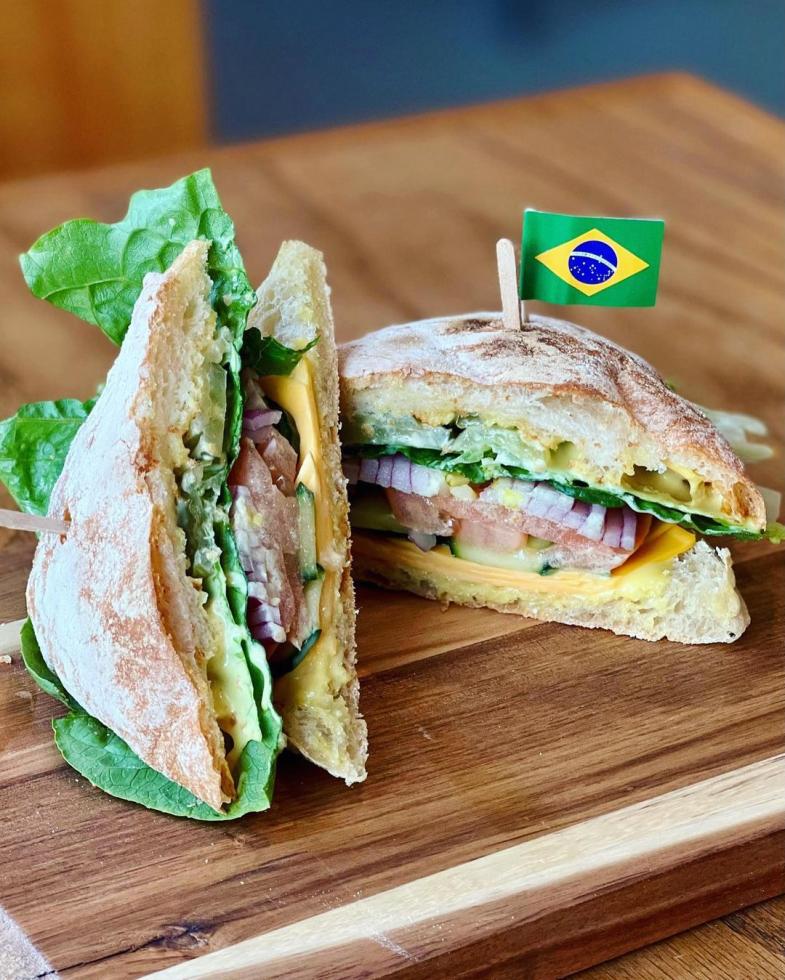
“They value us,” he says. “We want to be personable and we want to be close to them, like it is in Brazil. It’s all about family, it’s all about friends. Our biggest currency is our social skills.”
–
Stay up to date on business in the Capital Region: Subscribe to the Comstock’s newsletter today.
Recommended For You
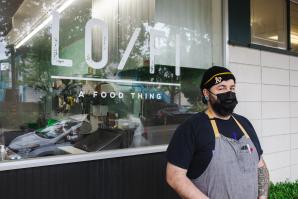
Neighborhood Favorite: Lo/Fi
A Southside Park cafe with a punk spirit serves seasonal comfort food
The neighborhood lunch spot serves comfort sandwiches, Sunday brunch, desserts and a bodega-style assortment of beer and wine.
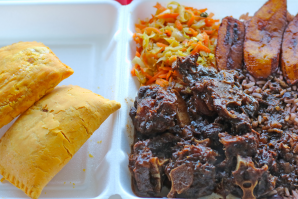
Neighborhood Favorite: Every Little Thing Jamaican
A Suisun City grocery store and takeout business serves Caribbean nostalgia
The market-kitchen hybrid offers Afro-Caribbean favorites like jerk chicken, curry goat and oxtail.
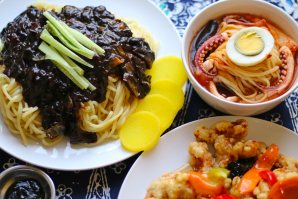
Neighborhood Favorite: Smile Market 2
The second branch of a longstanding supermarket serves Korean Chinese food
After more than 20 years selling Korean specialty items, the owners of Smile Food Market opened Smile Market 2, which serves fresh dishes like spicy seafood noodles and sweet-and-sour pork.
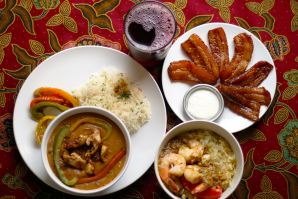
Neighborhood Favorite: Chulla’s Cafe
A political-scientist-turned-restaurateur brings a globalist approach to African fusion
The Chulla’s Cafe menu borrows influences from African,
Asian, Latin American, South European and Pacific coastal
regions.
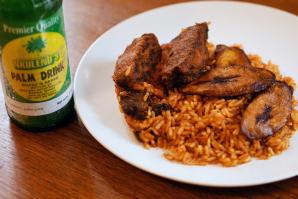
Neighborhood Favorite: Naija Cuisine
Sacramento’s only Nigerian restaurant gets a boost from TikTok
Fufu is a West African staple food made from boiled, pounded
cassava or other starches, and it’s trending on TikTok.
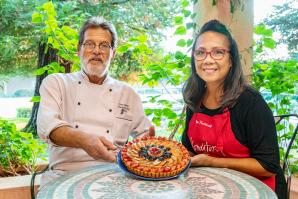
Neighborhood Favorite: Konditorei Austrian Pastry Café
How a ballerina and a baker built a Viennese pastry shop in Davis
Anyone who has visited the coffee houses of Vienna will see the
resemblance between those venerable institutions and Konditorei
Austrian Pastry Café in Davis.



